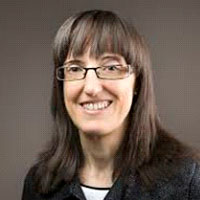Master's Degree in Information and Communication Technologies for Digital Education and Learning

Executive Intelligence as an educational model
The Master's Degree in Information and Communication Technologies for Digital Education and Learning is an official degree that lasts one academic year. We have a highly qualified teaching staff and contents that respond to the current needs of education and ICT.
The employability of our graduates exceeds 91%, in addition, the program is recognized for competitive examinations for teaching bodies.
The Master's degree has been valued as the best in Spain in the Online Education category according to the ranking prepared by the newspaper El Mundo.
We have the support of partners (Educaplay, Genially, CEDEC, Google-Devoteam, National Police Force-Master Plan, Ministry of Education-CEDE, among others), who participate in the different educational programs organized throughout the academic year. Each activity of the educational program is a space for direct dialogue between students and companies, foundations and state agencies.
With the aim of giving visibility to the best Master's final research projects, TFM Talks was created, which is a round table where alumni share their innovation and research work with current-year students.
Since December 2021, the program has had a favorable report from the Accreditation Agency of the Community of Madrid.
“Languages are a common thread between our inner self and the world", were the words used by Juan Antonio Maestro, vice rector of Research, to inaugurate the 3rd Nebrija Forum on Bilingual Teaching. The meeting was attended by various professionals who shared their experience and discussed the current situation of the sector and the new challenges that must be faced.
Student profile: All those applicants who meet the requirements imposed by current legislation will have access to the Master's Program in ICT for Digital Education and Learning, with the preferential admission profile being that of a University Degree or equivalent of the academic and disciplinary field of the Educational Sciences, such as Primary and Secondary Education, Pedagogy and Psychopedagogy. Also, given the transversal nature of the program, the student can access the Master's degree from other degrees as long as the candidate demonstrates training or experience in the field of education, such as graduates or equivalents who have completed the Master's in Teacher Training.
Graduate profile: The main objective of the Master's degree is training in the development of digital skills and ICT for digital teaching and learning. In this way, it is intended to train both teachers who are already teaching or qualified professionals in the educational field who need to improve their digital skills and want to integrate or grow in the centers of the Administration or private centers.
Official Degree:Máster Universitario en Tecnologías de la Información y la Comunicación para la Educación y Aprendizaje Digital
Center responsible:School of Language and Education
Branch of knowledge: Social and Legal Sciences
Openings available: 550
Total Credits:60 credits.
Minimum of 12 ECTS credits and maximum of 60 ECTS credits per enrollment and academic period.
Academic year in which it was implemented: 2017/2018
Duration: 1 year
Type of Education: Online
Academic Regulations: General student’s regulations. Credit transfer and recognition. Regulation of student participation. Common procedures for carrying out the Final Research Project
University Services: [+info]
Internal Quality Assurance System System managers Incidents, Suggestions and Complaints Job placement report and assessment of training received
Specialized in Information and Communication Technologies
Curriculum
BOE No. 168, of July 12, 2018
All our degrees and curricula have been prepared in accordance with the new guidelines set by current legislation, having already been verified by the National Agency for Quality Assessment.
The student must complete 60 credits
First Semester 30 ECTS
- 4 ECTS | Principles of Education in the Digital Society
- 6 ECTS | Environments for teaching and learning with ICT. Platforms, tools and modalities
- 4 ECTS | Digital and media competences
- 6 ECTS | Trends and innovation in education
- 6 ECTS | Educational proposals mediated by ICT: didactic design and methodologies
- 4 ECTS | Social networks and networked learning communities
Second Semester 30 ECTS
- 4 ECTS | Mobile and ubiquitous learning: Apps for education
- 4 ECTS | Games, gamification and ICT
- 6 ECTS | Content creation and digital resource management
- 4 ECTS | Digital narrative in education
- 12 ECTS | Final Research Project
Professors
| Profesores Professors | Porcentaje de Doctores Percentage of PhD holders |
| 25 | 70% |
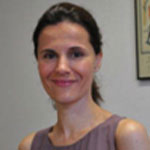 Inés Arranz Rodríguez
Directora del Máster en Dirección de Publicidad Integrada y profesora de Target, puntos de contacto y gestión de medios POEM y Planificación de medios integrada.
Director of the Master in Integrated Advertising Management and professor of Target, points of contact and media management POEM and Integrated Media Planning.
Directora del Máster en Dirección de Publicidad Integrada y profesora en la Facultad de Comunicación y Artes de la Universidad Nebrija, en Madrid. Doctora Cum Laude en Ciencias de la Información Universidad Complutense de Madrid. Máster Dirección Recursos Humanos. ESIC. Programa Superior en Digital Business y gestión de contenidos digitales. THE VALLEY. Curso Superior de Publicidad Digital. Icemd-Esic. Desarrolló su carrera profesional como directora de medios publicitarios durante veinte años en las agencias de medios Carat, Equumedia, Optimedia, Iceberg y SMA. Actualmente imparte docencia de las asignaturas Planificación de medios Laboratorio de Medios, Investigación de audiencias del Grado de Publicidad y RR.PP en la Universidad Nebrija y en las siguientes asignaturas de Máster: Estrategia de E-Marketing y Planificación de Medios On Line en el Máster en Marketing y Publicidad Digital. Target, puntos de contacto y gestión de medios POEM en el Máster en Dirección de Publicidad Integrada Planificación de Medios Integrada. Su línea de investigación se centra en la relación de la publicidad con los medios de comunicación.
Inés Arranz Rodríguez
Directora del Máster en Dirección de Publicidad Integrada y profesora de Target, puntos de contacto y gestión de medios POEM y Planificación de medios integrada.
Director of the Master in Integrated Advertising Management and professor of Target, points of contact and media management POEM and Integrated Media Planning.
Directora del Máster en Dirección de Publicidad Integrada y profesora en la Facultad de Comunicación y Artes de la Universidad Nebrija, en Madrid. Doctora Cum Laude en Ciencias de la Información Universidad Complutense de Madrid. Máster Dirección Recursos Humanos. ESIC. Programa Superior en Digital Business y gestión de contenidos digitales. THE VALLEY. Curso Superior de Publicidad Digital. Icemd-Esic. Desarrolló su carrera profesional como directora de medios publicitarios durante veinte años en las agencias de medios Carat, Equumedia, Optimedia, Iceberg y SMA. Actualmente imparte docencia de las asignaturas Planificación de medios Laboratorio de Medios, Investigación de audiencias del Grado de Publicidad y RR.PP en la Universidad Nebrija y en las siguientes asignaturas de Máster: Estrategia de E-Marketing y Planificación de Medios On Line en el Máster en Marketing y Publicidad Digital. Target, puntos de contacto y gestión de medios POEM en el Máster en Dirección de Publicidad Integrada Planificación de Medios Integrada. Su línea de investigación se centra en la relación de la publicidad con los medios de comunicación.
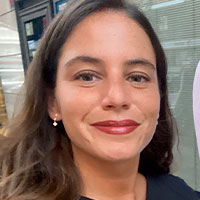 Ana Almagro Martín
Profesora de Diseño y Dirección de Arte.
Professor of Design and Art Direction.
Graduada en Publicidad y RRPP por la Universidad de Sevilla. Realizó el Máster en Creatividad Publicitaria impartido por The Atomic Garden en 2017; curso de After Effects en la Escuela Trazos en 2020 , y un Máster en 2020 en ta misma escueta en Diseño Gráfico y Web.
Ana Almagro Martín
Profesora de Diseño y Dirección de Arte.
Professor of Design and Art Direction.
Graduada en Publicidad y RRPP por la Universidad de Sevilla. Realizó el Máster en Creatividad Publicitaria impartido por The Atomic Garden en 2017; curso de After Effects en la Escuela Trazos en 2020 , y un Máster en 2020 en ta misma escueta en Diseño Gráfico y Web.Directora de Arte Senior en MRM/McCann, la agencia digital mundialmente reconocida del grupo McCann, especializada en contenidos digitales y campañas 360.
7 años de experiencia en publicidad y numerosos reconocimientos en Festivales publicitarios. Nombrada Top Art Directors en et Festival de Publicidad One Show en 2021.
Gran experiencia en medios digitales. Acutualmente es responsable de Mahou en medios digitales, así como Osca Mayer y Royal Bliss.Ha trabajado para Cruzcampo , Lagunitas, Warner, ING, lkea, y Pepe Jeans entre otros.
 José Aguilar López
Profesor de Habilidades Directivas y de Presentación
Executive and Presentation Skills Professor
Doctor en Filosofía y PDD por el IESE. En 2011 fue reconocido con el premio “Thinker” en el marco del Manager Forum (Madrid). Anteriormente obtuvo en 2006, junto a Javier Fernández Aguado, el premio del Management Internacional Forum al mejor libro de Management del año, por la obra conjunta "La soledad del directivo" (Lid, Madrid, 2006) y en 2008 el premio “Most Valuable Speaker”, concedido por Interban Network y el primer premio con el caso “Dreams Equity” en el Concurso de Casos de Negocio, organizado por la Nebrija Business School.
José Aguilar López
Profesor de Habilidades Directivas y de Presentación
Executive and Presentation Skills Professor
Doctor en Filosofía y PDD por el IESE. En 2011 fue reconocido con el premio “Thinker” en el marco del Manager Forum (Madrid). Anteriormente obtuvo en 2006, junto a Javier Fernández Aguado, el premio del Management Internacional Forum al mejor libro de Management del año, por la obra conjunta "La soledad del directivo" (Lid, Madrid, 2006) y en 2008 el premio “Most Valuable Speaker”, concedido por Interban Network y el primer premio con el caso “Dreams Equity” en el Concurso de Casos de Negocio, organizado por la Nebrija Business School.Como especialista en Dirección de Recursos Humanos, Comunicación y creación de empresa, ha dirigido seminarios y cursos en numerosas Universidades y Escuelas de Negocios de Europa y América.
Es miembro del Consejo Editorial de Executive Excellence y de otras publicaciones profesionales. Ha participado, en calidad de autor, coordinador o coautor, en quince libros. Es colaborador habitual en diarios, revistas de información económica, radio y TV y forma parte del colectivo Topten del management español (http://www.toptenms.com/). Su biografía ha sido publicada en el libros como: Grandes Creadores en la Historia del Management (Ariel), de José Luis García Ruiz; Who's who en el Management español (Interban), de Francisco Alcaide; y Quién es quién en Top Ten Speakers Spain (Thompson Reuters), coordinado por Blanca Fernández-Galiano. PhD in Philosophy and PDD from IESE. In 2011 he was recognized with the "Thinker" award in the framework of the Manager Forum (Madrid). Previously in 2006 he won, along with Javier Fernández Aguado, the Management International Forum award for the best management book of the year, for the joint work "La soledad del directivo" (Lid, Madrid, 2006) and in 2008 the "Most Valuable Speaker" award, granted by Interban Network and first prize with the "Dreams Equity" case in the Business Case Contest, organized by Nebrija Business School. As a specialist in Human Resources Management, Communication and business creation, he has directed seminars and courses in numerous Universities and Business Schools in Europe and America. He is a member of the Executive Excellence Editorial Board and other professional publications. He has participated, as author, coordinator or co-author, in fifteen books. He is a regular contributor to newspapers, economic information magazines, radio and TV and is part of the Topten collective of Spanish management (http://www.toptenms.com/). His biography has been published in books such as: Grandes Creadores en la Historia del Management (Great Creators in the History of Management) (Ariel), by José Luis García Ruiz; Who's who en el Management español (Who's who in Spanish Management) (Interban), by Francisco Alcaide; and Quién es quién en Top Ten Speakers Spain (Who's Who in Top Ten Speakers Spain) (Thompson Reuters), coordinated by Blanca Fernández-Galiano .
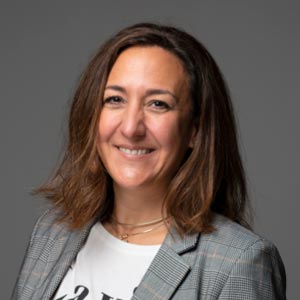 Gemma Baron Dulce
Profesora de Investigación, analítica web y control de eficacia
Professor of Research, Web Analytics and Effectiveness Control
Doctora Cum Laude en Ciencias de la Comunicación por la Universidad Nebrija. Acreditada por ANECA. Licenciada en Publicidad por la misma Universidad, Máster Universitario en Dirección de Comunicación por la UCAM. Ha trabajado en diversas Agencias Multinacionales de Publicidad, Marketing Relacional y Marketing Directo, así como en anunciantes en España y Francia.
En el año 2010 se incorpora como profesora e investigadora en la Universidad Nebrija, impartiendo desde entonces diferentes asignaturas en el Grado de Publicidad y Grado en Marketing. Ha sido Coordinadora Académica del Máster Universitario en Marketing y Publicidad Digital Yahoo!, implementándolo en su lanzamiento en modalidad online (2012-2013) y Coordinadora Académica del Máster Universitario en Dirección de Publicidad Integrada TBWA (2014-2015 y 2015-2016). En la actualidad es la directora de programa del Grado en Marketing.
Gemma Baron Dulce
Profesora de Investigación, analítica web y control de eficacia
Professor of Research, Web Analytics and Effectiveness Control
Doctora Cum Laude en Ciencias de la Comunicación por la Universidad Nebrija. Acreditada por ANECA. Licenciada en Publicidad por la misma Universidad, Máster Universitario en Dirección de Comunicación por la UCAM. Ha trabajado en diversas Agencias Multinacionales de Publicidad, Marketing Relacional y Marketing Directo, así como en anunciantes en España y Francia.
En el año 2010 se incorpora como profesora e investigadora en la Universidad Nebrija, impartiendo desde entonces diferentes asignaturas en el Grado de Publicidad y Grado en Marketing. Ha sido Coordinadora Académica del Máster Universitario en Marketing y Publicidad Digital Yahoo!, implementándolo en su lanzamiento en modalidad online (2012-2013) y Coordinadora Académica del Máster Universitario en Dirección de Publicidad Integrada TBWA (2014-2015 y 2015-2016). En la actualidad es la directora de programa del Grado en Marketing.
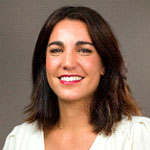 María Bergaz Portolés Díaz
Profesora de Planificación de medios integrada
Professor of Integrated Media Planning
Doctora en Ciencias de la Comunicación y Profesora de la Universidad Antonio de Nebrija. Licenciada en Publicidad y RR.PP e Investigación y Técnicas de Mercado, con Diploma en Estudios Empresariales por la Universidad Antonio de Nebrija. Master en Dirección de Comunicación por la Universidad Católica San Antonio de Murcia (UCAM).
Profesionalmente, trabajó en la agencia de medios Carat, en el Departamento de Servicios al Cliente Internacional con anunciantes como Disney, SCA, Glaxo Smithkline, Delaviuda o Yves Rocher.
Desde el año 2008 imparte docencia en los grados de Publicidad y Relaciones Públicas, Periodismo y Comunicación Audiovisual, de las áreas de: medios de comunicación, estrategia y planificación de medios, e investigación de audiencias.
María Bergaz Portolés Díaz
Profesora de Planificación de medios integrada
Professor of Integrated Media Planning
Doctora en Ciencias de la Comunicación y Profesora de la Universidad Antonio de Nebrija. Licenciada en Publicidad y RR.PP e Investigación y Técnicas de Mercado, con Diploma en Estudios Empresariales por la Universidad Antonio de Nebrija. Master en Dirección de Comunicación por la Universidad Católica San Antonio de Murcia (UCAM).
Profesionalmente, trabajó en la agencia de medios Carat, en el Departamento de Servicios al Cliente Internacional con anunciantes como Disney, SCA, Glaxo Smithkline, Delaviuda o Yves Rocher.
Desde el año 2008 imparte docencia en los grados de Publicidad y Relaciones Públicas, Periodismo y Comunicación Audiovisual, de las áreas de: medios de comunicación, estrategia y planificación de medios, e investigación de audiencias.
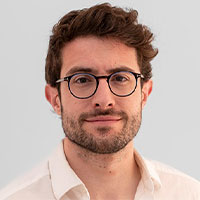 Fernando Bonete Vizcaino
Profesor de Mobile marketing y nuevas tendencias de comunicación
Professor of Mobile Marketing and New Communication Trends
Doctor en Comunicación Social y profesor contratado doctor (ANECA). En redes sociales es uno de los divulgadores digitales más importantes de España. Su cuenta de Instagram @en_bookle reúne a más de 400.000 personas en torno a la cultura y la literatura. Es colaborador habitual de diversos medios de comunicación y su trabajo ha sido reconocido con el Premio EDE Literatura 2022 y el Premio Lolo de Periodismo 2023. Ha publicado decenas de investigaciones en revistas científicas y libros de alcance nacional e internacional, y ha formado parte de proyectos de investigación para instituciones y medios de comunicación como el Observatorio Digital de Medios de la Comisión Europea, el Ministerio de Ciencia e Innovación, Atresmedia Corporación, RTVE, ZDF, France24 y Santander Universities. Con anterioridad ha ocupado cargos de gestión académica como director del Grado en Humanidades de la Universidad CEU San Pablo y director del Máster en Economía Circular y Desarrollo Sostenible de la Escuela de Unidad Editorial. Graduado en Humanidades y en Periodismo, y licenciado en Música, especialidad de Violín, por el Real Conservatorio Superior de Música de Madrid, ha completado su formación con el Máster Universitario en Formación para Profesorado, y el Título de Experto Universitario en Gestión y Desarrollo de Aplicaciones Web.
Fernando Bonete Vizcaino
Profesor de Mobile marketing y nuevas tendencias de comunicación
Professor of Mobile Marketing and New Communication Trends
Doctor en Comunicación Social y profesor contratado doctor (ANECA). En redes sociales es uno de los divulgadores digitales más importantes de España. Su cuenta de Instagram @en_bookle reúne a más de 400.000 personas en torno a la cultura y la literatura. Es colaborador habitual de diversos medios de comunicación y su trabajo ha sido reconocido con el Premio EDE Literatura 2022 y el Premio Lolo de Periodismo 2023. Ha publicado decenas de investigaciones en revistas científicas y libros de alcance nacional e internacional, y ha formado parte de proyectos de investigación para instituciones y medios de comunicación como el Observatorio Digital de Medios de la Comisión Europea, el Ministerio de Ciencia e Innovación, Atresmedia Corporación, RTVE, ZDF, France24 y Santander Universities. Con anterioridad ha ocupado cargos de gestión académica como director del Grado en Humanidades de la Universidad CEU San Pablo y director del Máster en Economía Circular y Desarrollo Sostenible de la Escuela de Unidad Editorial. Graduado en Humanidades y en Periodismo, y licenciado en Música, especialidad de Violín, por el Real Conservatorio Superior de Música de Madrid, ha completado su formación con el Máster Universitario en Formación para Profesorado, y el Título de Experto Universitario en Gestión y Desarrollo de Aplicaciones Web.
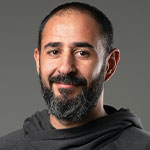 Javier Díaz-Masa Gutiérrez
Profesor de Dirección creativa estratégica y desarrollo de la innovación
Professor of Strategic Creative Management and Innovation Development
Licenciado en Publicidad y Relaciones Públicas con Diploma en Estudios Empresariales por la Universidad Nebrija. Máster en Creatividad y Estrategia por School Agency. Máster en Formación de Profesorado por Nebrija. Profesor en el Grado de Marketing, Grado de Publicidad y RRPP y Máster de Dirección de Publicidad Integrada / Coordinador del Grado Superior de Formación Profesional de Marketing y Publicidad.
Asignaturas: Storytelling y branded content / Narrativa transmedia y branded content / Técnicas de creatividad, emprendimiento e innovación / Dirección creativa estratégica y desarrollo de innovación / Políticas de marketing / Diseño y elaboración de material de comunicación.
Lleva 20 años trabajando como creativo en agencias de publicidad como Sra. Rushmore, Young&Rubicam, SCPF, Wunderman Thompson o MC Saatchi, ocupando el cargo de director creativo desde 2018.
Ha trabajado para marcas como BMW, Banco Sabadell, Vodafone, El Corte Inglés, Repsol, Movistar, Antena 3 o Ron Santa Teresa, siendo su trabajo reconocido en festivales como Cannes Lions, El Sol, EFI, Laus o CdeC.
Ha sido Jurado en los Premios Nacionales de Creatividad en 2017 y en los Premios Inspirational IAB 2020.
Co-autor del libro “El Branded Content en la comunicación posdigital: estructuras, aplicaciones y casos de éxito”. Ed. Tirant Lo Blanch (2021).
Desde 2019 colabora como profesor en Nebrija, impartiendo asignaturas centradas en creatividad, marketing, estrategia, emprendimiento e innovación.
Javier Díaz-Masa Gutiérrez
Profesor de Dirección creativa estratégica y desarrollo de la innovación
Professor of Strategic Creative Management and Innovation Development
Licenciado en Publicidad y Relaciones Públicas con Diploma en Estudios Empresariales por la Universidad Nebrija. Máster en Creatividad y Estrategia por School Agency. Máster en Formación de Profesorado por Nebrija. Profesor en el Grado de Marketing, Grado de Publicidad y RRPP y Máster de Dirección de Publicidad Integrada / Coordinador del Grado Superior de Formación Profesional de Marketing y Publicidad.
Asignaturas: Storytelling y branded content / Narrativa transmedia y branded content / Técnicas de creatividad, emprendimiento e innovación / Dirección creativa estratégica y desarrollo de innovación / Políticas de marketing / Diseño y elaboración de material de comunicación.
Lleva 20 años trabajando como creativo en agencias de publicidad como Sra. Rushmore, Young&Rubicam, SCPF, Wunderman Thompson o MC Saatchi, ocupando el cargo de director creativo desde 2018.
Ha trabajado para marcas como BMW, Banco Sabadell, Vodafone, El Corte Inglés, Repsol, Movistar, Antena 3 o Ron Santa Teresa, siendo su trabajo reconocido en festivales como Cannes Lions, El Sol, EFI, Laus o CdeC.
Ha sido Jurado en los Premios Nacionales de Creatividad en 2017 y en los Premios Inspirational IAB 2020.
Co-autor del libro “El Branded Content en la comunicación posdigital: estructuras, aplicaciones y casos de éxito”. Ed. Tirant Lo Blanch (2021).
Desde 2019 colabora como profesor en Nebrija, impartiendo asignaturas centradas en creatividad, marketing, estrategia, emprendimiento e innovación.
 Marta González Caballero
Profesora de Prácticas Profesionales
Professor of Professional Internships
Doctora en Comunicación Audiovisual por la UCM. Acreditada por ANECA y Licenciada en Ciencias de la Información por la misma Universidad. Diplomada en el CAP por la Facultad de Ciencias de la Educación, con especialización en Didáctica de los medios audiovisuales. Profesora Universitaria desde 1998, ha realizado su labor docente en universidades públicas y privadas y en la Escuela de Cinematografía y del Audiovisual de la Comunidad de Madrid (ECAM). Ha trabajado como operadora de cámara en el Congreso de los Diputados y en los Servicios informativos de TVE. Ha desarrollado gran parte de su experiencia profesional en el ámbito de la producción audiovisual para “M&m Producciones”, realizando piezas publicitarias, videoclips y proyectos multimedia. Desde hace dos años, colabora con el Estudio de diseño Dynarange como Audiovisual Manager en Organización de eventos. Ha realizado colaboraciones para Editorial Scriptum y para JC Libros de cine.
Marta González Caballero
Profesora de Prácticas Profesionales
Professor of Professional Internships
Doctora en Comunicación Audiovisual por la UCM. Acreditada por ANECA y Licenciada en Ciencias de la Información por la misma Universidad. Diplomada en el CAP por la Facultad de Ciencias de la Educación, con especialización en Didáctica de los medios audiovisuales. Profesora Universitaria desde 1998, ha realizado su labor docente en universidades públicas y privadas y en la Escuela de Cinematografía y del Audiovisual de la Comunidad de Madrid (ECAM). Ha trabajado como operadora de cámara en el Congreso de los Diputados y en los Servicios informativos de TVE. Ha desarrollado gran parte de su experiencia profesional en el ámbito de la producción audiovisual para “M&m Producciones”, realizando piezas publicitarias, videoclips y proyectos multimedia. Desde hace dos años, colabora con el Estudio de diseño Dynarange como Audiovisual Manager en Organización de eventos. Ha realizado colaboraciones para Editorial Scriptum y para JC Libros de cine.
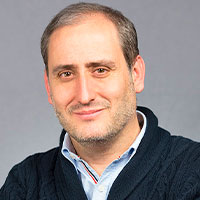 Carlos Jiménez Narros
Profesor de Trabajo fin de Máster
Professor of Master's Thesis
Doctor por la Universidad Complutense de Madrid. Profesor acreditado por la ACAP. Periodista con experiencia profesional en La Voz del Tajo, Radio Arco Iris y As. Además, ha trabajado en las revistas especializadas: PC Actual, Elektor, Deliberación, Games/consolas y Redes Lan, entre otras. Su trayectoria profesional está centrada en el diseño gráfico, técnicas de autoedición y proyectos de preimpresión y ha diseñado imágenes corporativas y proyectos gráficos para empresas e instituciones. Desde 1994 es profesor de la Universidad Antonio de Nebrija. Es autor de ponencias y comunicaciones en distintos congresos internacionales sobre comunicación, diseño y enseñanza. Su área de investigación está centrada en el diseño gráfico, nuevas tecnologías e innovación docente.
Carlos Jiménez Narros
Profesor de Trabajo fin de Máster
Professor of Master's Thesis
Doctor por la Universidad Complutense de Madrid. Profesor acreditado por la ACAP. Periodista con experiencia profesional en La Voz del Tajo, Radio Arco Iris y As. Además, ha trabajado en las revistas especializadas: PC Actual, Elektor, Deliberación, Games/consolas y Redes Lan, entre otras. Su trayectoria profesional está centrada en el diseño gráfico, técnicas de autoedición y proyectos de preimpresión y ha diseñado imágenes corporativas y proyectos gráficos para empresas e instituciones. Desde 1994 es profesor de la Universidad Antonio de Nebrija. Es autor de ponencias y comunicaciones en distintos congresos internacionales sobre comunicación, diseño y enseñanza. Su área de investigación está centrada en el diseño gráfico, nuevas tecnologías e innovación docente.
 Sara Larios Talán
Profesora de Creación de contenido de marca (Branded content)
Professor of Branded Content Creation (Branded content)
Profesora de Branded Content en el Máster en Dirección de Publicidad Integrada. Graduada en Publicidad y Relaciones Públicas en la Universidad Rey Juan Carlos y actual profesora asociada de dicha universidad impartiendo las asignaturas de “Creatividad en la elaboración del mensaje publicitario” y “Planificación Estratégica Publicitaria”. Estudios complementarios: Máster de Publicidad y Comunicación digital en IAB Spain; Máster en Creatividad Publicitaria en la escuela Zink Project; y Máster en Narración y Escritura creativa en Sefhor. Ganadora en la categoría Young Lions Media España 2022 en el Festival Internacional de Publicidad Cannes Lions. En paralelo, redactora creativa senior y guionista en The Story Lab, la agencia de contenidos digitales de la agencia de medios Dentsu. Especializada en la ideación, conceptualización, guionización y ejecución de proyectos digitales para grandes marcas.
Sara Larios Talán
Profesora de Creación de contenido de marca (Branded content)
Professor of Branded Content Creation (Branded content)
Profesora de Branded Content en el Máster en Dirección de Publicidad Integrada. Graduada en Publicidad y Relaciones Públicas en la Universidad Rey Juan Carlos y actual profesora asociada de dicha universidad impartiendo las asignaturas de “Creatividad en la elaboración del mensaje publicitario” y “Planificación Estratégica Publicitaria”. Estudios complementarios: Máster de Publicidad y Comunicación digital en IAB Spain; Máster en Creatividad Publicitaria en la escuela Zink Project; y Máster en Narración y Escritura creativa en Sefhor. Ganadora en la categoría Young Lions Media España 2022 en el Festival Internacional de Publicidad Cannes Lions. En paralelo, redactora creativa senior y guionista en The Story Lab, la agencia de contenidos digitales de la agencia de medios Dentsu. Especializada en la ideación, conceptualización, guionización y ejecución de proyectos digitales para grandes marcas.
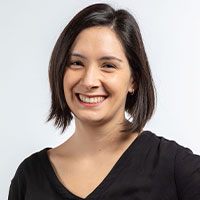 Irene Martín Soladana
Profesor de Investigación, analítica web y control de eficacia
Professor of Research, Web Analytics and Efficiency Monitoring
Doctora en Publicidad y Relaciones Públicas (2022) por la Universidad Complutense de Madrid. Máster en Dirección, protocolo, producción, organización y diseño de eventos en la Universidad Camilo José Cela (2016). Profesora asociada en la Universidad de Valladolid (Campus de Segovia) desde 2023. Ha impartido las asignaturas: “Fundamentos de las Relaciones Públicas” y “Públicos y usuarios de la comunicación publicitaria”. Desde 2014 hasta la actualidad ha trabajado en el departamento de cuentas de la agencia Hogarth. Ha trabajado para marcas como Oral-B, Vicks, Olay o Max Factor, entre otros, dando servicio al cliente Procter & Gamble en los mercados de España, Portugal e Italia.
Irene Martín Soladana
Profesor de Investigación, analítica web y control de eficacia
Professor of Research, Web Analytics and Efficiency Monitoring
Doctora en Publicidad y Relaciones Públicas (2022) por la Universidad Complutense de Madrid. Máster en Dirección, protocolo, producción, organización y diseño de eventos en la Universidad Camilo José Cela (2016). Profesora asociada en la Universidad de Valladolid (Campus de Segovia) desde 2023. Ha impartido las asignaturas: “Fundamentos de las Relaciones Públicas” y “Públicos y usuarios de la comunicación publicitaria”. Desde 2014 hasta la actualidad ha trabajado en el departamento de cuentas de la agencia Hogarth. Ha trabajado para marcas como Oral-B, Vicks, Olay o Max Factor, entre otros, dando servicio al cliente Procter & Gamble en los mercados de España, Portugal e Italia.
 Luis Munné García Muro
Profesor de Creatividad Integrada.
Integrated Creativity Professor.
Licenciado en CC. Económicas y Empresariales por la UAM. Master en Internet Business por el ISDI.
Director creativo digital en TBWA. Soy experto en la construcción y desarrollo de marcas/productos a través de un planteamiento estratégico sólido que se concreta en ideas potentes para cualquier medio. Desarrollo proyectos relacionados con todos los aspectos del marketing digital: buscadores, redes sociales, apps móviles o acciones creativas transmedia. Por mi experiencia en empresas de comunicación tanto en el departamento de cuentas/estrategia como en el departamento creativo mi objetivo es siempre hacer compatible la excelencia creativa con la orientación a resultados.
He trabajado en agencias como Saatchi & Saatchi, Young & Rubicam, Bozell o Havas Worldwide para clientes como Procter & Gamble, British Airways, Chrysler Jeep iberia, Peugeot, Telefónica, Repsol o PlayStation.
Luis Munné García Muro
Profesor de Creatividad Integrada.
Integrated Creativity Professor.
Licenciado en CC. Económicas y Empresariales por la UAM. Master en Internet Business por el ISDI.
Director creativo digital en TBWA. Soy experto en la construcción y desarrollo de marcas/productos a través de un planteamiento estratégico sólido que se concreta en ideas potentes para cualquier medio. Desarrollo proyectos relacionados con todos los aspectos del marketing digital: buscadores, redes sociales, apps móviles o acciones creativas transmedia. Por mi experiencia en empresas de comunicación tanto en el departamento de cuentas/estrategia como en el departamento creativo mi objetivo es siempre hacer compatible la excelencia creativa con la orientación a resultados.
He trabajado en agencias como Saatchi & Saatchi, Young & Rubicam, Bozell o Havas Worldwide para clientes como Procter & Gamble, British Airways, Chrysler Jeep iberia, Peugeot, Telefónica, Repsol o PlayStation.
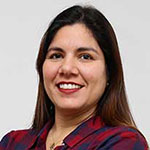 Eglée Ortega Fernández
Profesora de Social media Strategy
Professor of Social media strategy
Doctora en Comunicación Audiovisual, Publicidad y Relaciones Públicas. Profesora Acreditado por ANECA. Especializada en las áreas de marketing digital, posicionamiento de clientes (SEO), publicidad digital (SEM), redes sociales, optimización de contenidos, nuevas audiencias, comunicación corporativa y comunicación política. Ha sido coordinadora los másteres oficiales de ID Digital School, consultora de marketing digital en la agencia Top Position, coordinadora del Gabinete de Prensa del Partido Voluntad Popular y del político venezolano Leopoldo López (2011); Jefe y asistente del gabinete de prensa en los Institutos de Policía en los distritos de Chacao y Baruta en Venezuela, desde 2005 hasta 2009; asistente del embajador y de la sección de Prensa y Cultura en la oficina de la Unión Europea en Venezuela en 2010; y actualmente, miembro de la Asociación de Periodistas Venezuelan Press.
Eglée Ortega Fernández
Profesora de Social media Strategy
Professor of Social media strategy
Doctora en Comunicación Audiovisual, Publicidad y Relaciones Públicas. Profesora Acreditado por ANECA. Especializada en las áreas de marketing digital, posicionamiento de clientes (SEO), publicidad digital (SEM), redes sociales, optimización de contenidos, nuevas audiencias, comunicación corporativa y comunicación política. Ha sido coordinadora los másteres oficiales de ID Digital School, consultora de marketing digital en la agencia Top Position, coordinadora del Gabinete de Prensa del Partido Voluntad Popular y del político venezolano Leopoldo López (2011); Jefe y asistente del gabinete de prensa en los Institutos de Policía en los distritos de Chacao y Baruta en Venezuela, desde 2005 hasta 2009; asistente del embajador y de la sección de Prensa y Cultura en la oficina de la Unión Europea en Venezuela en 2010; y actualmente, miembro de la Asociación de Periodistas Venezuelan Press.
 Elvira María Pacheco Ortega
Profesora de Creación y estrategia de marca (Branding)
Professor of Brand Creation and Strategy (Branding)
Doctora en Ciencias. de la Información por la Universidad Complutense de Madrid en la que se licenció en Publicidad y RRPP. Su tesis doctoral, Dimensión ecológica en la nueva mercadotecnia, que obtuvo la calificación de Sobresaliente Cum Laude, constituye un acercamiento teórico al marketing ecológico.
Ha sido docente en el curso de Marketing Ecológico del CEPADE de la Universidad Politécnica de Madrid.
Desde hace 19 años trabaja en el Departamento de Marketing de Leroy Merlin. Actualmente lidera los equipos de Marca, Publicidad y Relaciones Públicas. Desde su misión, gestiona la marca, desarrolla la estrategia de comunicación e impulsa el alineamiento de las campañas de comunicación con los valores y el propósito de la marca.
También ha trabajado en Quiero Televisión, Telefónica B2B y Wunderman (Grupo WPP).
Elvira María Pacheco Ortega
Profesora de Creación y estrategia de marca (Branding)
Professor of Brand Creation and Strategy (Branding)
Doctora en Ciencias. de la Información por la Universidad Complutense de Madrid en la que se licenció en Publicidad y RRPP. Su tesis doctoral, Dimensión ecológica en la nueva mercadotecnia, que obtuvo la calificación de Sobresaliente Cum Laude, constituye un acercamiento teórico al marketing ecológico.
Ha sido docente en el curso de Marketing Ecológico del CEPADE de la Universidad Politécnica de Madrid.
Desde hace 19 años trabaja en el Departamento de Marketing de Leroy Merlin. Actualmente lidera los equipos de Marca, Publicidad y Relaciones Públicas. Desde su misión, gestiona la marca, desarrolla la estrategia de comunicación e impulsa el alineamiento de las campañas de comunicación con los valores y el propósito de la marca.
También ha trabajado en Quiero Televisión, Telefónica B2B y Wunderman (Grupo WPP).
 Emilio Palomares de Miguel
Profesor de Dirección de cuentas (cliente y proceso)
Professor of Account Management (customer and process)
Licenciado en Publicidad y RR.PP. por la Universidad de Valladolid y Experto en planificación estratégica y creatividad por la Universidad Complutense de Madrid.
Con más de 10 años de experiencia en el sector de la publicidad ha trabajado en diferentes agencias de publicidad nacionales e internacionales como JWT, Darwin and Co, Ogilvy y TBWA, con una amplia experiencia en la gestión y desarrollo de campañas integrales (TV, OOH, gráfica, digital, radio, PLV, RRSS influencers y AA.EE)
En la actualidad trabaja en TBWA como director de cuentas del área LSM para la cuenta de McDonald’s y previamente ha trabajado para multitud de marcas de diferentes sectores como: Iberia, Nutribén, Apple, Vichy (L´Oréal), Diario As, Rastreator, Clínicas Londres, Rolex, Paradores y Telepizza entre otros.
Emilio Palomares de Miguel
Profesor de Dirección de cuentas (cliente y proceso)
Professor of Account Management (customer and process)
Licenciado en Publicidad y RR.PP. por la Universidad de Valladolid y Experto en planificación estratégica y creatividad por la Universidad Complutense de Madrid.
Con más de 10 años de experiencia en el sector de la publicidad ha trabajado en diferentes agencias de publicidad nacionales e internacionales como JWT, Darwin and Co, Ogilvy y TBWA, con una amplia experiencia en la gestión y desarrollo de campañas integrales (TV, OOH, gráfica, digital, radio, PLV, RRSS influencers y AA.EE)
En la actualidad trabaja en TBWA como director de cuentas del área LSM para la cuenta de McDonald’s y previamente ha trabajado para multitud de marcas de diferentes sectores como: Iberia, Nutribén, Apple, Vichy (L´Oréal), Diario As, Rastreator, Clínicas Londres, Rolex, Paradores y Telepizza entre otros.
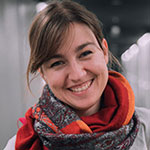 Amanda Zita Pons Pérez
Profesora de Social media strategy
Professor of Social media strategy
Licenciada en Comunicación Audiovisual por la Universidad Complutense de Madrid y Máster en Creatividad Publicitaria en Zink!. Antes de su llegada a la publicidad trabajó como directora de producción en proyectos cinematográficos a nivel nacional e internacional y dirigió las Jornadas de Webseries y el Festival Español de Webseries. Con más de 9 años de experiencia, en el 2014 ganó el Sol de Oro a Jóvenes Creativos para el cliente Nescafé y cuenta con otros premios de festivales como Inspirational, El Sol o EFI. Ha trabajado para Havas, BTOB, TBWA y Xiaomi, en el que fue la Marketing Manager de POCO en España. Colabora en la asociación de Innovación Audiovisual donde investiga sobre contenido y storytelling y está desarrollando su doctorado en Comunicación, Publicidad y Relaciones Públicas en la Universidad Complutense de Madrid. Compagina su investigación con proyectos de consultoría que abordan el desarrollo de estrategias de contenido y redes sociales.
Amanda Zita Pons Pérez
Profesora de Social media strategy
Professor of Social media strategy
Licenciada en Comunicación Audiovisual por la Universidad Complutense de Madrid y Máster en Creatividad Publicitaria en Zink!. Antes de su llegada a la publicidad trabajó como directora de producción en proyectos cinematográficos a nivel nacional e internacional y dirigió las Jornadas de Webseries y el Festival Español de Webseries. Con más de 9 años de experiencia, en el 2014 ganó el Sol de Oro a Jóvenes Creativos para el cliente Nescafé y cuenta con otros premios de festivales como Inspirational, El Sol o EFI. Ha trabajado para Havas, BTOB, TBWA y Xiaomi, en el que fue la Marketing Manager de POCO en España. Colabora en la asociación de Innovación Audiovisual donde investiga sobre contenido y storytelling y está desarrollando su doctorado en Comunicación, Publicidad y Relaciones Públicas en la Universidad Complutense de Madrid. Compagina su investigación con proyectos de consultoría que abordan el desarrollo de estrategias de contenido y redes sociales.
 María del Mar Ramos Rodríguez
Profesora de Diseño y dirección de arte
Design and art direction
Doctora en Bellas Artes por la Universidad Complutense de Madrid. Licenciada en Ciencias de la Imagen y Sonido por la misma universidad. Su práctica profesional se ha desarrollado en el mundo de la fotografía, la producción audiovisual y el diseño gráfico y editorial. Destaca su experiencia laboral en el mundo de la publicidad cinematográfica, en estudios de diseño y en la productora cinematográfica CineCompany, así como en las empresas de comunicación editorial Grupo Zeta y Vocento. En la Universidad Antonio de Nebrija imparte docencia desde 1998 en programas de grado y postgrado en las áreas de Comunicación Audiovisual, Periodismo y Publicidad al tiempo que lo compagina con proyectos gráficos y audiovisuales para empresas e instituciones.
María del Mar Ramos Rodríguez
Profesora de Diseño y dirección de arte
Design and art direction
Doctora en Bellas Artes por la Universidad Complutense de Madrid. Licenciada en Ciencias de la Imagen y Sonido por la misma universidad. Su práctica profesional se ha desarrollado en el mundo de la fotografía, la producción audiovisual y el diseño gráfico y editorial. Destaca su experiencia laboral en el mundo de la publicidad cinematográfica, en estudios de diseño y en la productora cinematográfica CineCompany, así como en las empresas de comunicación editorial Grupo Zeta y Vocento. En la Universidad Antonio de Nebrija imparte docencia desde 1998 en programas de grado y postgrado en las áreas de Comunicación Audiovisual, Periodismo y Publicidad al tiempo que lo compagina con proyectos gráficos y audiovisuales para empresas e instituciones.
 Francisco Jaime Reyes Sánchez
Profesor de Producción de contenidos publicitarios
Professor of production of advertising content
Profesor en la Facultad de Ciencias de la Información de la Universidad Complutense de Madrid desde el curso 2000-2001. Doctor en Ciencias de la Información por la Universidad Complutense de Madrid (2003, Sobresaliente Cum Laude).
Creó la, primera y única hasta la fecha, asignatura sobre Cultura Urbana en la Universidad española en el curso 2005-2006 (Graffiti, hip hop y medios de comunicación),
En 2010 publicó el primer y único libro de música en la Cultura Urbana hasta la fecha en español, titulado: Rap, 25 años de rimas, que llegó a situarse en el top 10 de ventas ese año y se vendieron más de 60.000 ejemplares en todo el mundo. Ha publicado tres libros, 14 capítulos de libros, 10 artículos indexados y situados en repositorios de calidad, dos libros de actas en congresos científicos y 555 artículos sobre Cultura Urbana en la creación
Francisco Jaime Reyes Sánchez
Profesor de Producción de contenidos publicitarios
Professor of production of advertising content
Profesor en la Facultad de Ciencias de la Información de la Universidad Complutense de Madrid desde el curso 2000-2001. Doctor en Ciencias de la Información por la Universidad Complutense de Madrid (2003, Sobresaliente Cum Laude).
Creó la, primera y única hasta la fecha, asignatura sobre Cultura Urbana en la Universidad española en el curso 2005-2006 (Graffiti, hip hop y medios de comunicación),
En 2010 publicó el primer y único libro de música en la Cultura Urbana hasta la fecha en español, titulado: Rap, 25 años de rimas, que llegó a situarse en el top 10 de ventas ese año y se vendieron más de 60.000 ejemplares en todo el mundo. Ha publicado tres libros, 14 capítulos de libros, 10 artículos indexados y situados en repositorios de calidad, dos libros de actas en congresos científicos y 555 artículos sobre Cultura Urbana en la creación
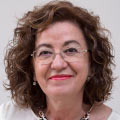 Juana Rubio Romero
Profesora de Trabajo Fin de máster
Professor of Master's Final Project
Profesora Doctora Acreditada. Licenciada en Psicología. Doctora en Filosofía. Profesora e investigadora en la Facultad de Comunicación y Artes desde 1996. Su especialización son los Métodos de Investigación y la Psicología aplicados a la comunicación y al consumo. Experiencia profesional en investigación social y de mercado. Ha ejercido en diversos puestos de responsabilidad como investigadora cualitativista para Institutos de Investigación, Agencias de Publicidad y clientes directos. Ha dirigido durante cinco años el Curso de Investigación en Marketing, que organiza AEDEMO. Ha participado en numerosos congresos nacionales e internaciones, como ponente y formando parte del comité organizador. Sus publicaciones más relevantes son documentos técnicos de investigación social.
Juana Rubio Romero
Profesora de Trabajo Fin de máster
Professor of Master's Final Project
Profesora Doctora Acreditada. Licenciada en Psicología. Doctora en Filosofía. Profesora e investigadora en la Facultad de Comunicación y Artes desde 1996. Su especialización son los Métodos de Investigación y la Psicología aplicados a la comunicación y al consumo. Experiencia profesional en investigación social y de mercado. Ha ejercido en diversos puestos de responsabilidad como investigadora cualitativista para Institutos de Investigación, Agencias de Publicidad y clientes directos. Ha dirigido durante cinco años el Curso de Investigación en Marketing, que organiza AEDEMO. Ha participado en numerosos congresos nacionales e internaciones, como ponente y formando parte del comité organizador. Sus publicaciones más relevantes son documentos técnicos de investigación social.
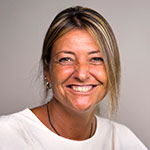 Diana Sánchez Serrano
Profesora de Dirección creativa estratégica y desarrollo de la innovación
Professor of Strategic Creative Management and Innovation Development
Doctora Cum Laude en Publicidad y Comunicación Aplicada por la UCM, donde también cursó el Máster en Escritura Creativa y completó su licenciatura en Publicidad y RR.PP.
Especialista en redacción publicitaria y creatividad con más de una década de experiencia en agencias nacionales e internacionales ha compaginado la actividad profesional con la docencia en grado y postgrado. Directora del Grado en Publicidad y Relaciones públicas.
Entre sus principales líneas de investigación destacan los estudios sobre creatividad social, la culturización social de las marcas o la idoneidad de estrategias en culturas contemporáneas. Y sus últimas publicaciones ponen el foco en la relación de las marcas con el consumidor:
Diana Sánchez Serrano
Profesora de Dirección creativa estratégica y desarrollo de la innovación
Professor of Strategic Creative Management and Innovation Development
Doctora Cum Laude en Publicidad y Comunicación Aplicada por la UCM, donde también cursó el Máster en Escritura Creativa y completó su licenciatura en Publicidad y RR.PP.
Especialista en redacción publicitaria y creatividad con más de una década de experiencia en agencias nacionales e internacionales ha compaginado la actividad profesional con la docencia en grado y postgrado. Directora del Grado en Publicidad y Relaciones públicas.
Entre sus principales líneas de investigación destacan los estudios sobre creatividad social, la culturización social de las marcas o la idoneidad de estrategias en culturas contemporáneas. Y sus últimas publicaciones ponen el foco en la relación de las marcas con el consumidor: - “La publicidad como fuente socializadora en materia familiar: El caso IKEA (1996-2012)”. Revista Mediaciones Sociales, vol 17 (2018)
- Convertirse en Love Brand, desde la culturización social. El caso IKEA (2010-2020) Pendiente de publicación
- La importancia en la estrategia de contenidos y distribución en la eficacia del branded content. El caso Aprendemos Juntos, de BBVA. Pendiente de publicación.
 Celia Sancho Belinchón
Profesora de Diseño y dirección de arte
Professor of Design and Art Direction
Celia Sancho Belinchón es doctora en Comunicación Audiovisual, Publicidad y Relaciones Públicas. Está especializada en comunicación digital, estrategia de comunicación política y comunicación corporativa digital, siendo estas las áreas a las que ha dedicado ocho años de su carrera profesional. Durante los últimos años ha impartido asignaturas relativas a la gestión de contenidos digitales y la comunicación digital en los grados de Periodismo y Comunicación Corporativa. Actualmente es profesora en la facultad de Comunicación y Artes de la Universidad Nebrija y directora del Master de Periodismo Digital y de Datos de esta misma universidad. Cuenta en su currículum con varias publicaciones científicas relativas al estudio de la estrategia digital de los medios de comunicación o el análisis de las plataformas digitales utilizadas en el cine.
Celia Sancho Belinchón
Profesora de Diseño y dirección de arte
Professor of Design and Art Direction
Celia Sancho Belinchón es doctora en Comunicación Audiovisual, Publicidad y Relaciones Públicas. Está especializada en comunicación digital, estrategia de comunicación política y comunicación corporativa digital, siendo estas las áreas a las que ha dedicado ocho años de su carrera profesional. Durante los últimos años ha impartido asignaturas relativas a la gestión de contenidos digitales y la comunicación digital en los grados de Periodismo y Comunicación Corporativa. Actualmente es profesora en la facultad de Comunicación y Artes de la Universidad Nebrija y directora del Master de Periodismo Digital y de Datos de esta misma universidad. Cuenta en su currículum con varias publicaciones científicas relativas al estudio de la estrategia digital de los medios de comunicación o el análisis de las plataformas digitales utilizadas en el cine.
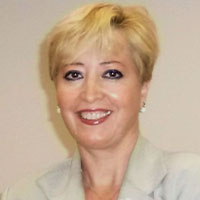 Beatriz Sanjurjo Rebollo
Profesora de Normativa y Regulación Profesional
Professional Norms and Regulations Professor
Doctora cum laude en Derecho por la Universidad Autónoma de Madrid. Profesora Acreditada por ANECA. Licenciada en Derecho por la Universidad Autónoma de Madrid. Diploma de Especialización en Derecho Constitucional y Ciencias Políticas por el Centro de Estudios Políticos y Constitucionales. Dirección de Personal y Recursos Humanos por la Escuela de Organización Industrial. Dirección y Gestión Empresarial por la Universidad Politécnica de Madrid. Experta en Comercio Internacional por la Universidad Autónoma de Madrid. Académica correspondiente de la Real Academia de Jurisprudencia y Legislación. Abogada en ejercicio del Ilustre Colegio de Abogados de Madrid y profesora universitaria de Derecho. Especialista en Derecho de la Información y Nuevas Tecnologías.
Beatriz Sanjurjo Rebollo
Profesora de Normativa y Regulación Profesional
Professional Norms and Regulations Professor
Doctora cum laude en Derecho por la Universidad Autónoma de Madrid. Profesora Acreditada por ANECA. Licenciada en Derecho por la Universidad Autónoma de Madrid. Diploma de Especialización en Derecho Constitucional y Ciencias Políticas por el Centro de Estudios Políticos y Constitucionales. Dirección de Personal y Recursos Humanos por la Escuela de Organización Industrial. Dirección y Gestión Empresarial por la Universidad Politécnica de Madrid. Experta en Comercio Internacional por la Universidad Autónoma de Madrid. Académica correspondiente de la Real Academia de Jurisprudencia y Legislación. Abogada en ejercicio del Ilustre Colegio de Abogados de Madrid y profesora universitaria de Derecho. Especialista en Derecho de la Información y Nuevas Tecnologías.
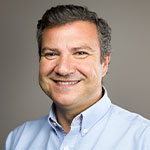 Fernando Toledano Cuervas-Mons
Profesor de Producción de contenidos publicitarios
Professor of Production of advertising content
Director del Departamento de Publicidad y profesor permanente de la Facultad de Artes y Comunicación.
Acreditado por ANECA en las figuras de profesor contratado doctor, profesor de universidad privada y profesor ayudante doctor.
Doctor en Ciencias de la Información por la Universidad Complutense de Madrid. Master en Publicidad por ICADE (Universidad Comillas). Licenciado en Ciencias de la Información por la UCM, especialidad en Comunicación audiovisual.
Ha trabajado en Gardoqui-Gold; Publicis y RdA Comunicación. Ha sido docente en el Curso de Creatividad Publicitaria y de la Comunicación del IED (Istituto Europeo di Design). Pertenece al Comité́ Ejecutivo del Capitulo Académico de la IAA (International Advertising Association). Ha sido Director del Grado en Publicidad y RR.PP. y del Grado en Marketing y Comunicación Comercial.
Fernando Toledano Cuervas-Mons
Profesor de Producción de contenidos publicitarios
Professor of Production of advertising content
Director del Departamento de Publicidad y profesor permanente de la Facultad de Artes y Comunicación.
Acreditado por ANECA en las figuras de profesor contratado doctor, profesor de universidad privada y profesor ayudante doctor.
Doctor en Ciencias de la Información por la Universidad Complutense de Madrid. Master en Publicidad por ICADE (Universidad Comillas). Licenciado en Ciencias de la Información por la UCM, especialidad en Comunicación audiovisual.
Ha trabajado en Gardoqui-Gold; Publicis y RdA Comunicación. Ha sido docente en el Curso de Creatividad Publicitaria y de la Comunicación del IED (Istituto Europeo di Design). Pertenece al Comité́ Ejecutivo del Capitulo Académico de la IAA (International Advertising Association). Ha sido Director del Grado en Publicidad y RR.PP. y del Grado en Marketing y Comunicación Comercial.• Toledano, F. Selva, D. y Díaz-Masa, J. (2021). La transformación digital de la comunicación: nuevas fórmulas de creación, producción y distribución de contenidos de marca. Valencia: Tirant Lo Blanch.
• Toledano, F., Olivares, J. y Santacruz, N. (2020). Nuevos perfiles profesionales y su integración en la industria publicitaria: de la transformación digital aun nuevo modelo de agencia en Sociedad digital & empleabilidad en comunicación. Salamanca: Comunicación social.
• Toledano, F. y de Miguel, M. (2018). Storytelling y Storydoing: técnicas narrativas para la creación de experiencias publicitarias en Creatividad en Publicidad: Del impacto al comparto. Madrid: Dykinson.
• Toledano, F. y Núñez, P. (2017). La formación de la creatividad: una instantánea de los grados universitarios en El creativo publicitario en la era digital. Madrid: Síntesis.
• Toledano, F., Miguel, B. y Grijalba, N. (2016). La transformación de la industria publicitaria: nuevos perfiles y competencias del creativo publicitario. Madrid: Dykinson.
• Toledano, F.; Polo, S. (2015). Presencia, respuesta, generación y sugerencia (PRGS) en campañas publicitarias en redes sociales. En Comunicación e interactividad. ACCI. Paginas 513-530.
• Toledano, F.; Miguel, B. (2015). Herramientas de marketing de contenido para la generación de trafico cualificado online. Opción. Vol. 31. Páginas 978-996. • Toledano, F.; Grijalba, N. (2011). El entretenimiento como estrategia de comunicación. En Investigaciones educomunicativas en la sociedad multipantalla. Fragua. Páginas 273-286.
• Toledano, F. (2010). El diseño del anuncio gráfico publicitario en medios convencionales: un análisis del método de trabajo del director de arte. Tesis doctoral.
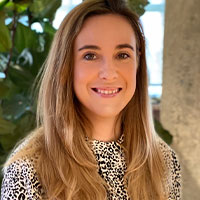 Patricia Urgoiti Roldán
Profesora de Planificación estratégica: account planning
Professor of Strategic Planning: Account Planning
Graduada en Publicidad. por la Universidad Nebrija. Directora de Estrategia en DAVID Madrid. Con un background en investigación y marketing digital, en sus más de 10 años de experiencia, ha desarrollado su carrera en agencias como FCB y Proximity Barcelona, y ha trabajado con clientes como Burger King, Netflix, Audi, Milka, Škoda o Heineken, entre otros.
Patricia Urgoiti Roldán
Profesora de Planificación estratégica: account planning
Professor of Strategic Planning: Account Planning
Graduada en Publicidad. por la Universidad Nebrija. Directora de Estrategia en DAVID Madrid. Con un background en investigación y marketing digital, en sus más de 10 años de experiencia, ha desarrollado su carrera en agencias como FCB y Proximity Barcelona, y ha trabajado con clientes como Burger King, Netflix, Audi, Milka, Škoda o Heineken, entre otros.En 2018 y 2022 fue nombrada Mejor Planner del Año por la revista Control. Diferentes campañas en las que ha participado han sido premiadas en festivales internacionales (Cannes Lions, AD&D, Echo Awards, El Ojo de Iberoamérica, El Sol) y nacionales (c de c o Inspirational). Asimismo, cuenta en su palmarés con varios Premios Eficacia, entre ellos el Gran Premio a la Eficacia (2017) por ‘La Muñeca que Eligió Conducir’, de Proximity Barcelona para Audi.
Además de esta, algunas de las campañas más relevantes de las que ha formado parte son “Confusing Times” o “Stevenage” de Burger King, “Por Siempre Jamás” de Audi o “Be The Meister”.
 Angel Zaragoza Garcia
Profesor de Mobile Marketing y Nuevas Tendencias Online
Mobile Marketing and New Communication Trends Professor
Licenciado en CC de la Información por la UCM y Máster en Internet Business por ISDI. Su carrera profesional se ha desarrollado en el área del emprendimiento digital y la consultoría de marketing, simultaneando proyectos en empresas del sector.
Es director de Marketing online de la agencia Zeta Punto Comunicación, donde también ha dirigido proyectos de ecommerce como la tienda del concesionario Audi, VW, Skoda, F.Tomé, Laboratorios Farmasierra, Conserva Selección, Gafas de Sol Store, Alex and Ani, etc.
Angel Zaragoza Garcia
Profesor de Mobile Marketing y Nuevas Tendencias Online
Mobile Marketing and New Communication Trends Professor
Licenciado en CC de la Información por la UCM y Máster en Internet Business por ISDI. Su carrera profesional se ha desarrollado en el área del emprendimiento digital y la consultoría de marketing, simultaneando proyectos en empresas del sector.
Es director de Marketing online de la agencia Zeta Punto Comunicación, donde también ha dirigido proyectos de ecommerce como la tienda del concesionario Audi, VW, Skoda, F.Tomé, Laboratorios Farmasierra, Conserva Selección, Gafas de Sol Store, Alex and Ani, etc.Actualmente tiene una fuerte especialización en Mobile Marketing en la empresa Reinicia, donde implementa campañas, apps y webs mobile para clientes como Ono, Domino’s Pizza, Bosch, Mahou, Sanitas y Turismo de Andorra.
Adicionalmente, lleva la Dirección Comercial de Pangea Reality, la primera empresa especializada en App con un alto componente en realidad aumentada mobile en España.
More Academic Information
Competences
In the development of the training plan, students will be able to acquire a set of basic, general and specific skills.
Basic CompetencesIn accordance with Royal Decree 43/2015 and Royal Decree 861/2010, which modifies Royal Decree 1393/2007, of October 29, which establishes the organization of official university education, as well as Royal Decree 1027/2011, which establishes the Spanish Framework of Qualifications for Higher Education (MECES), Master's degrees education must guarantee the acquisition of the following basic competences:
- BC6 Possess and understand knowledge that provides a basis or opportunity to be original in the development and/or application of ideas, often in a research context.
- BC7 That students know how to apply the knowledge acquired and their ability to solve problems in new or unfamiliar environments within broader (or multidisciplinary) contexts related to their area of study.
- BC8 That students are able to integrate knowledge and face the complexity of making judgments based on information that, being incomplete or limited, includes reflections on the social and ethical responsibilities linked to the application of their knowledge and judgments.
- BC9 That students know how to communicate their conclusions and the knowledge and ultimate reasons that sustain them to specialized and non-specialized audiences in a clear and unambiguous way.
- BC10 That students have the learning skills that allow them to continue studying in a way that will be largely self-directed or autonomous.
- GC1 Be able to identify and understand theories, pedagogical models and teaching and learning methodologies mediated through ICT.
- GC2 Be able to understand the educational, communicative, social and technological implications in the design of didactic proposals with ICT.
- GC3 Be able to produce, manage, organize and use information and educational resources based on ICT for teaching and learning.
- GC4 Be able to apply theoretical knowledge about digital learning to teaching with the use of ICT as an educational strategy.
- GC5 Be able to work collaboratively and in multidisciplinary teams in the field of ICT in education, both in leadership and coordination.
- GC6 Be able to analyze critically and reflectively, evaluate and synthesize new and complex ideas in the field of education with ICT.
- GC7 Be able to understand digital communication processes and be able to communicate effectively through technology in the educational context.
- GC8 Be able to show positive attitudes towards educational innovation, especially with the use of technologies for learning.
- GC9 Be able to search, select and filter specific content about technology in digital education and learning.
- SC1 Know how the context of Digital Society influences the teaching and learning processes and understand how it affects the different educational modalities: elearning, blearning and classroom lectures.
- SC2 Analyze, develop and create educational initiatives with ICT in a creative and original way.
- SC3 Know in depth the technological-instrumental management of digital platforms and tools and their functionality for teaching with ICT.
- SC4 Use digital platforms and tools for teaching and learning with ICT according to the needs of the learners and their different levels.
- SC5 Recognize, understand and know how to apply educational trends and innovations with ICT in the classroom.
- SC7 Design, analyze and apply communication and dynamization strategies for online learning communities, social networks and open environments.
- SC8 Apply the use of ICT with the appropriate methodological design in the different educational modalities: elearning, blearning and classroom lectures.
- SC9 Know the educational, communicative and technological implications of mobile and ubiquitous environments and apps and know how to put them into practice.
- SC10 Design digital academic content in multiple media and formats according to the educational level, considering the pedagogical, aesthetic and legal aspects.
- SC11 Know the mechanics of games and simulation and know how to apply them in the design of didactic proposals with TIC.
- SC12 Use content management systems in the network to facilitate digital learning.
- SC13 Use ICT in the design of learning and assessment activities according to the profile of students and teaching modality.
- SC14 Apply the components of digital narrative and be able to use them in the context of digital teaching and learning.
- SC15 Search and analyze information on the use of ICT in educational contexts for the improvement of teaching and learning processes and educational innovation.
- SC16 Apply the knowledge acquired in the Master to develop and defend a job in the area of ICT in education and digital learning.
Online Study
The master's degree is studied remotely (online) through various educational activities, among which are the lectures by videoconference for the presentation of contents and for individual and group work through different activities.
More information: Digital pedagogy: Methodology
Calendar and Schedules
Schedules
The Master's degree will start in October and end in July. Week zero will take place from October 16 to 20, with the objective of presenting the program and publicizing the platform's operation.
The sessions will begin on October 23 2023 and end on April 30, 2023. The hours of the online sessions will be from 18:00-19:30 y 19:30-21:00, Monday through Friday. The exams will be held on Saturday, from 9:30 to 14:00, and will take place in person.
At the end of the academic year, the student must prepare, submit and defend before a Tribunal his Master's degree Final Research Project. The defense can be done in person at the University or through videoconference.
Admission
Admission paths and requirements
The routes and requirements for admission to Master's level education are those established by Royal Decree 1393/2007 of October 29, with its subsequent modification in Royal Decree 861/2010, of July 2, which establishes the organization of official university education.
or its part, the admission profile for the Master's Degree in ICT for Digital Education and Learning is defined as follows: All applicants who meet the requirements established by current legislation, may access the Master's Degree in ICT for Digital Education and Learning, of which the admission profile is that of a university graduate, or equivalent, in the academic and disciplinary field of Educational Sciences: Teachers in Primary or Early Childhood Education, Pedagogy, or Psychopedagogy. Likewise, given the transversal nature of the program, students who have completed the Master's Degree in Teacher Training will be able to access this Master's Degree.
As established in Article 16 of RD 1393/2007, modified by RD 861/2010, students who meet any of the following conditions may access these studies:
- Have an official Spanish university degree or other degree issued by an institution of higher education of the European Higher Education Area that grants access to Master's studies in the country issuing said degree.
- Graduates of educational systems outside the European Higher Education Area may access without the need for validation of their degrees, after verification by the University that they can accredit a level of studies equivalent to the corresponding official Spanish university degrees and that these grant access to postgraduate education in the country issuing said degree. Access through this route will not imply, in any case, the homologation of the previous degree of the interested party, nor its recognition for other purposes than that of taking the Master's degree. In the cases in which the validation of any degree, diploma or study obtained abroad is necessary to access the University, the Antonio de Nebrija University may conditionally admit students who accredit having submitted the corresponding application for validation while the approval procedure is resolved. These cases are included within the “Conditioned Enrollment Procedure" implemented by the University in Academic Organization Plan.
- In the case of students with Special Educational Needs (SEN) the need for possible curricular adaptations, itineraries or alternative studies will be assessed.
Specifically, all applicants who meet the requirements provided for in current legislation will be able to access the Master's Degree Program in ICTs for Digital Education and Learning, as the admission profile is that of a university graduate or equivalent from the academic and disciplinary field of Sciences of Education: Teachers of Primary or Early Childhood Education, Pedagogy, or Psychopedagogy. Likewise, given the transversal nature of the program, students who have completed the Master's Degree in Teacher Training may access this Master's degree.
How to submit documentation necessary for admission.
In general, the admission documentation will be submitted to the Admissions Department.
The student must provide the originals or certified copies of the submitted documentation, within a period established by the University, in order to formalize his/her enrollment. Any inaccuracy, falsity or omission of information, statement or document provided by the student in the admission period will entail the impossibility of continuing to exercise the right from the moment the University has proof of these events, and proceed to cancel the application for admission submitted and the place awarded, notwithstanding any criminal, civil or administrative responsibilities that may arise.
In order to access the official master's degrees, it is necessary to submit the following documentation:
- Completed admission application.
- Identification document (D.N.I) or valid passport.
- 2 passport-size photographs.
- If necessary, a letter issued by the University in which he/she has completed the degree that grants access to Master's studies in the country issuing the diploma.
- Official Spanish university diploma.
- Official diploma issued by a foreign higher education institution belonging to the European Higher Education Area (EHEA) that grants access, in the issuing country, to official master's degree studies that grants access, in the issuing country, to official master's degree studies.
- Official diploma issued in a foreign educational system not belonging to the EHEA. In this case, access will be conditioned by the verification that the studies completed correspond to a level of studies equivalent to that of the official Spanish university degrees and that they grant access to the official master's degrees in the country in which the diploma was issued. This procedure does not imply, in any case, the homologation of the previous degree, nor its recognition for any purpose other than to access the master's studies.
- Personalized letter of intent addressed to the Director of the Master's Degree Program in ICT for Digital Education and Learning, explaining the reasons why he/she wants to study Master's degrees as well as the academic and professional expectations that lead him/her to this choice.
- Updated Curriculum Vitae.
In the event that the studies granting access to the pre-registration of the Master's degree are completed in a Foreign Higher Education institution, both the diploma and the academic record (grades) must be official and issued by the competent authorities, in accordance with the legal system of the country of origin.
In addition, they will have to meet the requirements described in detail in the "Access and admission procedure for Master_PO12" of the Teaching Organization Plan implemented by the University.
In addition to evaluating the academic merits provided by the candidate, students must hold a personal interview as part of the admission process. This interview, carried out by the Director of the Master's degree or a professor, is aimed at checking the suitability of the candidate and his/her profile related to the degree. This is done to determine if the candidate has sufficient motivation, training and knowledge, abilities, aptitudes, communication skills, extracurricular activities and future interests necessary to be admitted as a student in the Nebrija University postgraduate programs.
In the Master's Degree in ICT for Digital Education and Learning, academic merits have a weight of 50% in the admission process, the other 50% depends on the personal interview. One of the criteria with the greatest weight in the interview is having basic digital skills and competences in order to be able to take full advantage of the program, as well as an interest in innovation in educational contexts.
Una vez que el alumno ha sido admitido procederá a realizar la matriculación que consta de las siguientes fases:Once the student has been admitted, they will proceed to enroll, which consists of the following phases:
- Annual registration fees: Candidates must reserve their place. This economic pre-enrollment guarantees the candidate's place at the University. These annual registration fees will not be returned, except for students who are conditionally admitted, or do not meet the legal requirements for admission.
- Enrollment: Pre-enrolled candidates who wish to formalize their academic enrollment at the University must, within the indicated deadlines, follow these steps:
- 1. Submit documentation: prove that you meet the requirements established by Spanish university legislation for admission to the Master's degree.
- 2. Formalize the enrollment process online: The self-enrollment service on the Nebrija website allows admitted students to carry out all the academic, economic and administrative procedures within the established deadlines. To do this, they will receive, together with their letter of admission, the access code and the personal password necessary to be able to carry out their self-enrollment. Once the self-enrollment is formalized, the candidate acquires the status of a Nebrija University student.
- 3. Make the enrollment payment , for the academic year, according to the modality chosen by the student.
- Deadlines for enrollment:
- 1. Enrollment will be carried out on an annual basis; the opening date will vary depending on the beginning of the Program. However, enrollment must be done at least one week before the start of classes.
- 2. An extraordinary period will be opened exceptionally for students who want to start their studies in the second semester, enrollment must be carried out before the mid-term exams of the second semester.
Employability
Career Opportunities
The main objective of the Master's degree is the training in the development of digital skills and ICT for digital teaching and learning. In this way, it is intended to train both teachers who are already teaching and qualified professionals in the educational field who need to improve their digital skills and want to integrate or grow in the centers of the Administration or private centers.
More Information on Internships in CompaniesTestimonials
University Life in Information and Communication Technologies for Education and Digital Learning
Visit all the Activities of the School of Language and Education

How social networks influence teenagers
Article published by Mónica Moreno, a professor at Nebrija University, on the influence of social networks on students and their direct influence on the learning process.
See article
Ecological transition at school: education, buildings and school environments
Article published by Alexandra Delgado, a professor at Nebrija University, on the ecological transition, the social change it entails, and the importance of applying this process in Education.
See articleLet's talk about Education
First chapter of the video podcast specialized in Education where the research processes and their application in neuroscience and the educational sector are analyzed.




